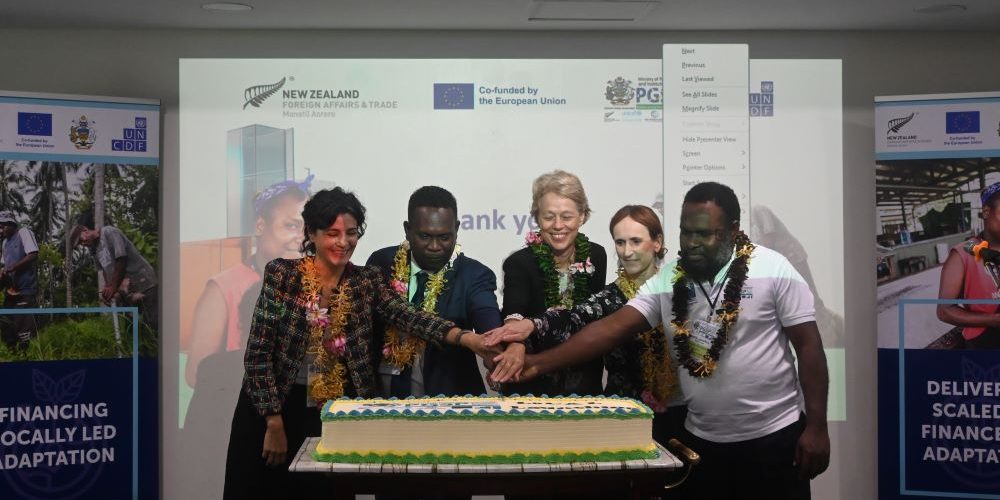The Local Climate Adaptive Living Facility (LoCAL) Solomon Islands was officially launched on Friday at the Heritage Park Hotel.
The European Union, the Regional Assistance Mission to Solomon Islands (RAMSI), United Nations Development Program (UNDP), and the United Nations Capital Development Funds (UNCDF), under the leadership of the Solomon Islands Government mobilized over USD$18 million in 2008 to launch the Provincial Governance Strengthening Program with a performance-based component of Provincial Capacity Development Fund (PCDF).
Minister for Provincial Government and Institutional Strengthening (MPGIS), Wayne Ghemu said LoCAL would not only upscale the existing Provincial Capacity Development Fund (PCDF), but also assist the nine provincial governments in accessing essential climate funding for resilience-building projects.
“The project will ensure there is increased awareness and capacity of Provincial Governments to respond to climate change adaptation.
“Climate change adaptation shall be integrated into Provincial Government’s plans and there will be an increased number of local adaptation interventions and investments,” Minister Ghemu said.
He added that their contributions, which served as seed money to initiate the performance-based grant in 2008, are now beginning to attract the interest and confidence of our development partners.
Furthermore, Premier for Guadalcanal Province, William Tabuabi Atu, said for Solomon Islands, like any other small island development states, climate change is not a distant threat, but an immediate reality that we experience every day.
“The communities are now facing increasing unpredictable frequency and intensity of weather patterns, affecting areas from agriculture production, food security, water supply, rising sea levels, and exposure to climate disasters.
“In addition, Solomon Islands geographically sits on the ring of fire, with potential disaster risks apart from climate change,” Hon. Atu said.
He added that it is believed that through this partnership, additional support and performance-based grant funding will be available to provinces over the next four years.
“With the support of this programme, provinces, wards and communities will become equipped with the capacity to understand the risks and impacts of climate change, and the tools to integrate resilience into every part of their planning processes and system.
“The LOCAL programme will be embedded in the Provincial Government Capacity Development Fund, “Premier Atu said.
The Premier thanked MPGIS for having this platform ready for this programme.
He added that the established performance-based grant system that has been established for provincial governments.
“With local provincial governments empowered not only to design climate change adapters and strategies, but to draw on the technical expertise that guides these projects from planning to execution, monitoring and beyond,” Hon. Atu said.
Additionally, LoCAL, UNCDF Program Specialist, Melissa Tipping said LoCAL reflects the fact that UNCDF truly believe that subnational and provincial governments have a critical role to play in delivering services and delivering climate adaptation.
“We know that subnational and provincial governments are in a unique position to identify local needs. These needs can differ between villages.
“One might be on a hillside, one might be on a coastal area and they change from year to year. Sometimes their needs are climate, water security, another year it might be flooding.
“We feel that local governments and provincial governments are in this great position to be able on this annual cycle to respond to those needs very responsibly and effectively,” Ms Tipping said.
LoCAL is a program led by the Government of Solomon Islands, with support from New Zealand and the European Union. It seeks to empower communities to drive and deliver local action to address the impacts of climate change in Solomon Islands.
Working through the (PCDF), LoCAL will provide performance-based climate resilience grants to Provincial Governments, along with technical and capacity-building assistance, to deliver action on climate change.
The program is being led by MPGIS, working alongside the Ministry of Environment, Climate Change, and Disaster Management (MECDM), and the nine Provincial Governments.
By AGNES MENANOPO
Solomon Star, Honiara









